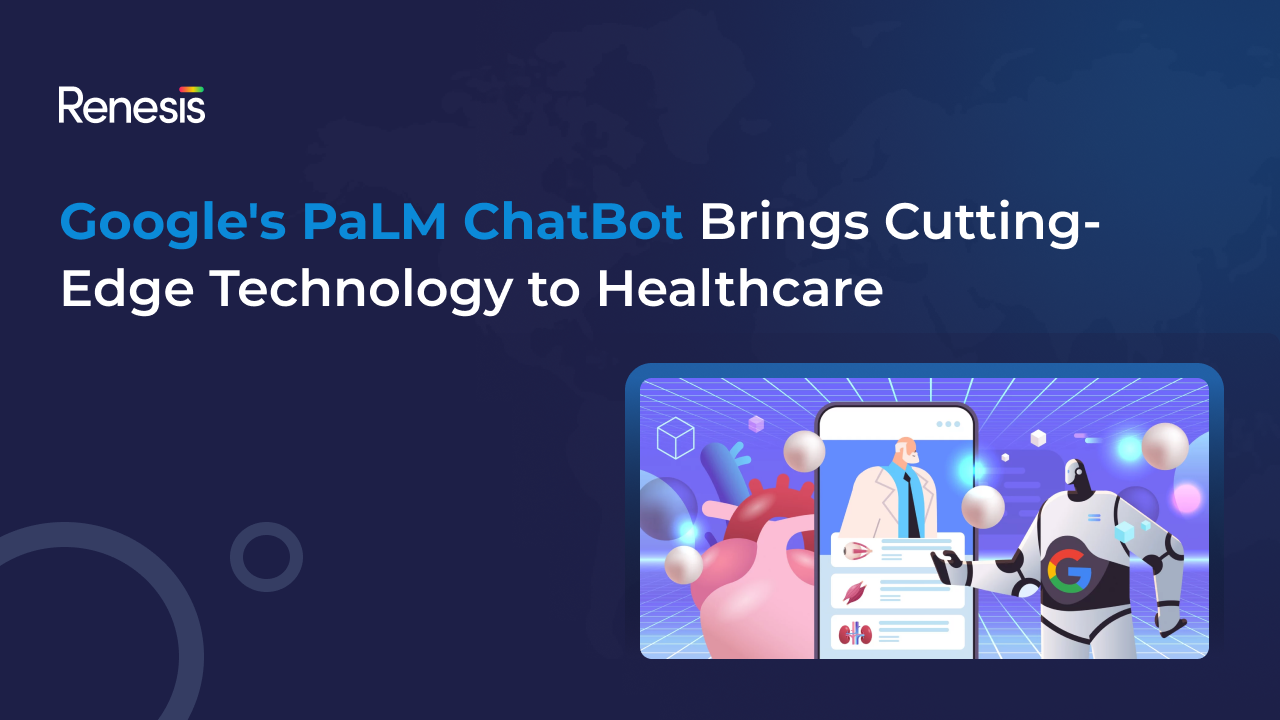Google’s PaLM ChatBot Brings Cutting-Edge Technology to Healthcare
A powerful, cutting-edge chatbot PaLM is being unveiled by Google at a major healthcare conference in Cleveland. Google’s PaLM ChatBot is a breakthrough piece of technology that Google hopes will revolutionize healthcare. The project has already raised over $1 billion for various novel AI-enabled solutions that are being developed for the commercial market.
It allows patients to see what doctors have in mind for their healthcare by creating an interactive chat. This model evaluates how people respond to complex issues? A detailed assessment system was used to measure the accuracy, detail, and prejudice of answers. As a result, people and patients receive unbiased answers to their questions.
Among the diverse clinical topics included in MultiMedQA are MedQA, MedMCQA, PubMedQA, LiveQA, MedicationQA, and MMLU, as well as the newly developed HealthSearchQA. Based on seed medical diagnoses and symptoms, this HealthSearchQA dataset contains 3375 consumer questions. In this way, MultiMedQA can provide more efficient curating of frequently asked questions.
MultiMedQA provided researchers with 540 billion parameters for evaluating Long-form Language Models (LLMs). MMLU clinical topics have been achieved with Flan-PaLM’s instruction-tuned variation to achieve state-of-the-art performance. By using few-shot and chain-of-thought (CoT) prompting techniques, Flan-PaLM outperformed many excellent LLM baselines.
Compared with the previous state-of-the-art, Flan-PaLM performed over 17% better on the MedQA dataset of USMLE questions. Flan-PaLM results have been impressive, but some notable gaps have been identified.
The Med-PaLM was developed as a response to this issue. Although it performs better than Flan-PaLM, a human medical expert must still be outperformed.
The doctors concluded that 92.6% of the Med-PaLM responses matched the clinicians’ answers (92.9%), while only 61.9% of the long-form Flan-PaLM answers complied with the scientific consensus. According to Med-PaLM, 5.8% of answers could contribute to negative consequences, similar to clinician-generated answers (6.5%), while 29.7% of Flan-PaLM answers might.
Taking healthcare to the next level with Google
Google announced at Google for India 2022 that it will collaborate with Apollo Hospitals in India on improving the use of deep learning models in x-rays and other diagnostic applications. As part of its healthcare partnerships, Google has partnered with Aravind Eye Care System, Ascension, Mayo Clinic, Rajavithi Hospital, Northwestern Medicine, Sankara Nethralaya, and Stanford Medicine.
AI-driven healthcare solutions aren’t a new trend for tech giants. A collaborative effort between Microsoft and the OpenAI team is also underway to use GPT-3 to enhance collaboration between employees and clinicians.
Furthermore, Meta AI introduced Galactica, a program based on artificial intelligence that claimed to support academic researchers by creating comprehensive literature reviews. However, it failed to achieve its goal due to unreliable results.
Additionally, Meta AI created an AI agent with natural language processing and strategic reasoning called CICERO. During the complex game of Diplomacy, this AI agent provided impressive results.
The average score CICERO achieved while playing against human players was more than double that of the average score of all other players, and he was even among the top 10% of all players who participated in multiple games.
It shows the power of AI, and how it has the potential to outwit even the most experienced humans, as demonstrated by CICERO and other emergent & functional AIs.










